-
 Bitcoin
Bitcoin $117,462.8204
-2.03% -
 Ethereum
Ethereum $3,061.1595
1.10% -
 XRP
XRP $2.9139
-2.19% -
 Tether USDt
Tether USDt $1.0002
0.02% -
 BNB
BNB $685.1357
-1.24% -
 Solana
Solana $161.3803
-2.11% -
 USDC
USDC $1.0002
0.04% -
 Dogecoin
Dogecoin $0.1948
-2.92% -
 TRON
TRON $0.2987
-0.89% -
 Cardano
Cardano $0.7330
-1.27% -
 Hyperliquid
Hyperliquid $47.7888
0.13% -
 Stellar
Stellar $0.4514
-2.93% -
 Sui
Sui $4.0169
2.74% -
 Chainlink
Chainlink $15.7088
-2.57% -
 Hedera
Hedera $0.2356
-3.33% -
 Bitcoin Cash
Bitcoin Cash $488.6656
-3.61% -
 Avalanche
Avalanche $21.2955
-1.47% -
 UNUS SED LEO
UNUS SED LEO $9.0415
0.42% -
 Shiba Inu
Shiba Inu $0.0...01332
-0.82% -
 Toncoin
Toncoin $3.0124
-0.62% -
 Litecoin
Litecoin $94.2175
-2.07% -
 Polkadot
Polkadot $4.0011
-0.61% -
 Monero
Monero $333.5714
-3.46% -
 Uniswap
Uniswap $9.1114
-1.56% -
 Dai
Dai $1.0000
0.02% -
 Ethena USDe
Ethena USDe $1.0005
0.00% -
 Bitget Token
Bitget Token $4.4951
1.87% -
 Pepe
Pepe $0.0...01242
0.47% -
 Aave
Aave $321.9943
0.51% -
 Bittensor
Bittensor $434.1984
5.13%
Why is Bitcoin mining so hard?
Bitcoin mining's computational complexity, driven by SHA-256 and Proof-of-Work, demands specialized hardware and vast energy, making it increasingly difficult and resource-intensive over time.
Jul 15, 2025 at 09:28 am
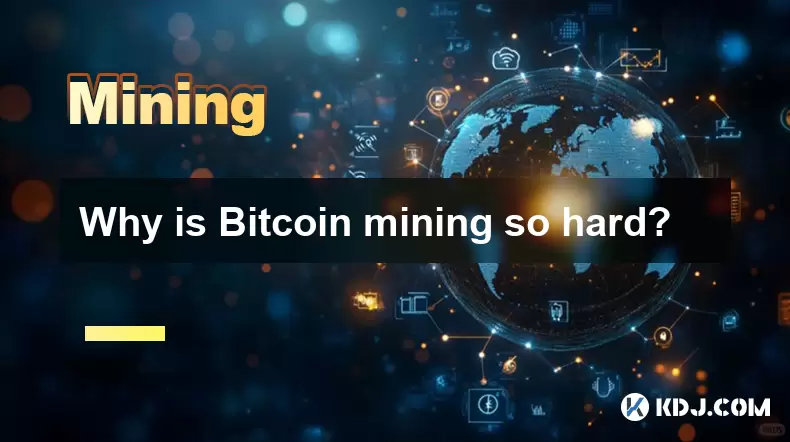
Understanding the Computational Complexity of Bitcoin Mining
Bitcoin mining is considered difficult primarily due to its computational complexity, which stems from the cryptographic algorithms used in the blockchain. At the heart of Bitcoin's security lies the SHA-256 hashing algorithm, a cryptographic function that miners must repeatedly execute to find a valid block hash. This process involves generating countless hash values until one meets the current difficulty target set by the network. The hash rate required to perform these calculations at competitive speeds has increased dramatically over time, making it nearly impossible for standard computers or even high-end CPUs to mine profitably.
To illustrate how demanding this process is, consider that each block header includes data such as the previous block’s hash, a timestamp, and a nonce (a random number). Miners alter the nonce and re-hash the block header repeatedly, aiming to produce a hash that begins with a specific number of zeros. As more miners join the network, the difficulty adjustment mechanism ensures that blocks are mined approximately every 10 minutes by increasing the number of leading zeros required in the hash. This dynamic adjustment makes Bitcoin mining increasingly resource-intensive over time.
The Role of Proof-of-Work in Mining Difficulty
The Proof-of-Work (PoW) consensus mechanism is another core reason why Bitcoin mining is so challenging. PoW requires miners to expend real-world resources—primarily electricity and computing power—to validate transactions and secure the network. This system was designed to prevent spamming, fraud, and double-spending attacks by making it economically unfeasible for malicious actors to manipulate the blockchain.
Each time a miner successfully validates a block, they must present a valid proof of work, which is essentially a hash value below the current difficulty threshold. Because finding such a hash is probabilistic and requires many attempts, miners must invest in specialized hardware, such as ASICs (Application-Specific Integrated Circuits), which are optimized solely for hashing operations. These devices consume large amounts of electricity while performing trillions of hash calculations per second, further contributing to the high barrier to entry for new miners.
Hardware Requirements and Technological Barriers
Mining Bitcoin today demands dedicated ASIC hardware, which is vastly different from general-purpose computing equipment. Early Bitcoin mining could be done using CPUs or GPUs, but as the network grew, miners sought more efficient tools. This led to the development of ASIC chips, which offer unparalleled hashing performance but come with significant costs.
To understand the scale of investment needed, consider the following:
- High-performance ASICs like the Bitmain Antminer S19 Pro can cost thousands of dollars.
- These machines require constant cooling and maintenance due to their high thermal output.
- Power consumption is substantial, often exceeding 3,000 watts per unit.
- Mining farms typically house hundreds or thousands of these units, requiring industrial-scale infrastructure.
Moreover, sourcing reliable hardware is not always straightforward. Many manufacturers sell directly to large institutional buyers or through exclusive distributors, leaving individual miners with limited access to the latest technology. Even when hardware is available, ongoing operational costs—especially electricity—can quickly erode profits unless miners have access to extremely cheap energy sources.
Energy Consumption and Environmental Considerations
One of the most frequently cited reasons Bitcoin mining is difficult is its massive energy consumption. According to recent estimates, the Bitcoin network consumes more electricity annually than some small countries. This level of consumption is necessary because mining is a race: whoever controls the most computational power has a higher chance of solving the next block and earning the reward.
Miners often seek out regions with low-cost electricity, such as hydroelectric power in China or natural gas flaring sites in Texas, to remain profitable. However, this pursuit introduces additional logistical challenges, including setting up remote mining facilities, managing heat dissipation, and complying with local regulations. Furthermore, environmental concerns surrounding Bitcoin mining have led to increased scrutiny from governments and the public, potentially limiting access to affordable energy in the future.
Despite efforts to green Bitcoin mining through renewable energy initiatives, the fact remains that the energy-intensive nature of PoW cannot be ignored. For individual miners, securing access to low-cost, sustainable power remains a major hurdle.
Network Difficulty and Competitive Landscape
Bitcoin mining difficulty adjusts every 2016 blocks, or roughly every two weeks, based on the total computing power of the network. If more miners join or existing miners upgrade their equipment, the difficulty increases to maintain the 10-minute block interval. Conversely, if miners leave the network, difficulty decreases accordingly.
This self-regulating mechanism ensures that mining remains consistently challenging regardless of technological advancements or fluctuations in participation. As a result, individual miners face an uphill battle competing against large mining pools and institutional operations that control significant portions of the network’s hash rate. Pool mining allows participants to combine their computational resources and share rewards proportionally, but it also means that solo miners rarely succeed in validating a block on their own.
Additionally, the centralization trend in mining poses a challenge to decentralization principles. A handful of companies and regions dominate global hash rate distribution, creating potential risks for network security and governance. For newcomers, entering this highly concentrated market without substantial capital and technical expertise is extremely difficult.
Economic Viability and Risk Factors
Beyond the technical and physical barriers, the economic viability of mining adds another layer of difficulty. Fluctuations in Bitcoin’s price directly impact profitability. When the price drops, the return on investment for mining equipment may fall below operational costs, forcing miners to either shut down operations or absorb losses until prices recover.
Other economic considerations include:
- Initial capital investment for hardware and infrastructure.
- Electricity costs, which vary widely depending on geographic location.
- Maintenance and repair expenses for high-intensity mining rigs.
- Potential hardware obsolescence, as newer ASIC models render older ones inefficient.
Furthermore, mining carries inherent financial risk. There is no guarantee that a miner will earn enough Bitcoin to offset expenses, especially given the unpredictable nature of block rewards and transaction fees. This uncertainty makes Bitcoin mining less accessible to casual participants and more suited for those who can absorb short-term volatility.
Frequently Asked Questions
Q: Can I mine Bitcoin with my home computer?
A: While it was possible in Bitcoin’s early days, modern mining requires specialized ASIC hardware. Using a regular PC or GPU is no longer feasible due to the immense computational demands and energy inefficiency.
Q: Is Bitcoin mining legal everywhere?
A: No, Bitcoin mining legality varies by country. Some nations, like China, have banned or restricted mining activities, while others, such as Canada and parts of the U.S., allow it under certain regulatory frameworks.
Q: How much does it cost to start mining Bitcoin?
A: Initial costs can range from several thousand to tens of thousands of dollars, depending on the scale of operation. Expenses include ASIC purchase, electricity setup, cooling systems, and ongoing power bills.
Q: What happens when all Bitcoins are mined?
A: Once the maximum supply of 21 million Bitcoins is reached, miners will rely solely on transaction fees for income. This shift may impact mining incentives and network security dynamics.
Disclaimer:info@kdj.com
The information provided is not trading advice. kdj.com does not assume any responsibility for any investments made based on the information provided in this article. Cryptocurrencies are highly volatile and it is highly recommended that you invest with caution after thorough research!
If you believe that the content used on this website infringes your copyright, please contact us immediately (info@kdj.com) and we will delete it promptly.
- Crypto Bull Run: Riding the Wave to Maximize Gains
- 2025-07-16 02:50:12
- Lightchain AI Bonus Round: Last Chance for Early Access?
- 2025-07-16 02:30:12
- Payroll Revolution: How Stablecoins are Reshaping Salaries in the Crypto Age
- 2025-07-16 02:30:12
- BlockDAG, X1 App, CRO Price: Decoding the Hype and the Hope
- 2025-07-16 01:20:12
- Trump, Cryptocurrencies, and Remarks: A Wild Ride in the Crypto World
- 2025-07-16 01:35:12
- BNB Price Check: Navigating Crypto Pullback and Inflation Concerns
- 2025-07-16 01:50:12
Related knowledge
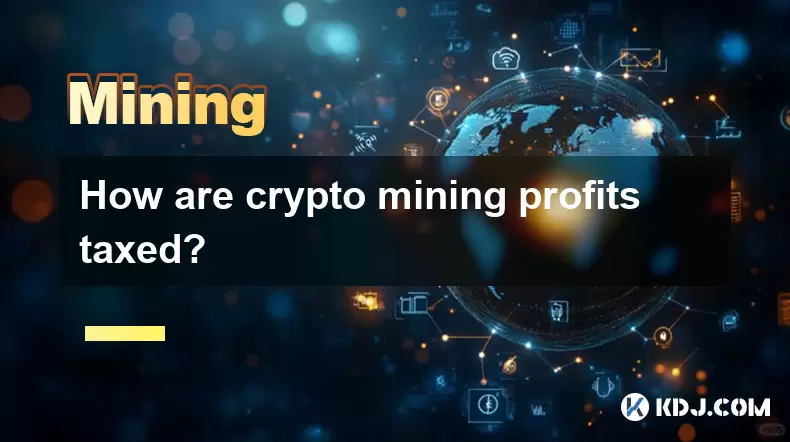
How are crypto mining profits taxed?
Jul 14,2025 at 12:28am
Understanding Cryptocurrency Mining and TaxationCryptocurrency mining involves validating transactions on a blockchain network and earning rewards in ...
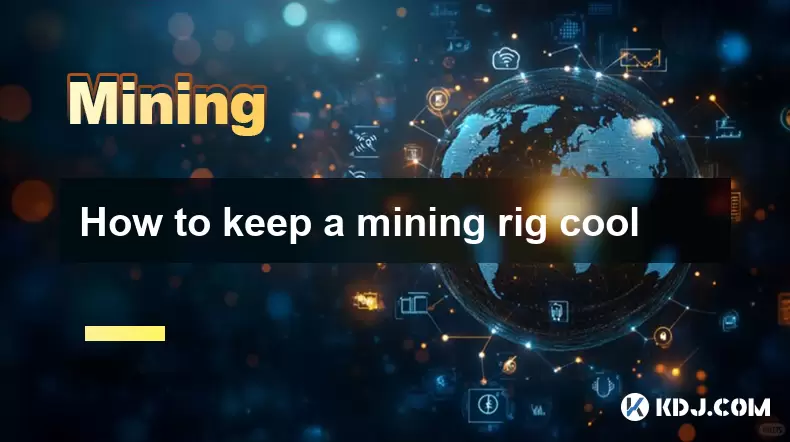
How to keep a mining rig cool
Jul 12,2025 at 01:42pm
Understanding the Importance of Cooling in Mining RigsCryptocurrency mining is an intensive process that places heavy demand on hardware components, p...
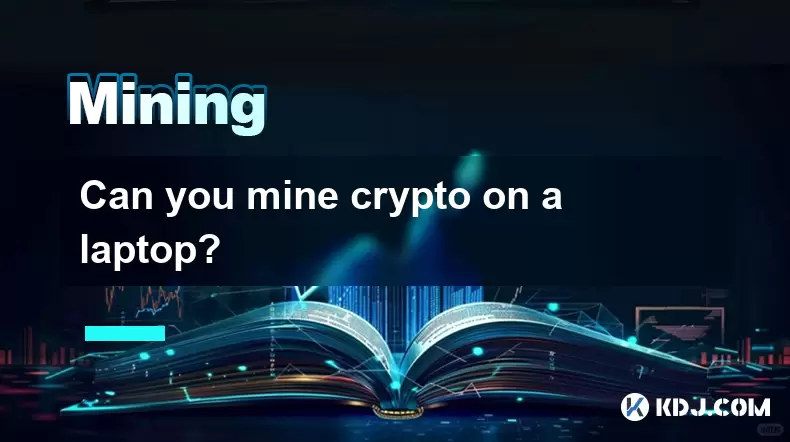
Can you mine crypto on a laptop?
Jul 16,2025 at 02:21am
Is It Feasible to Mine Cryptocurrency on a Laptop?Mining cryptocurrency on a laptop is technically possible, but feasibility depends heavily on the ha...
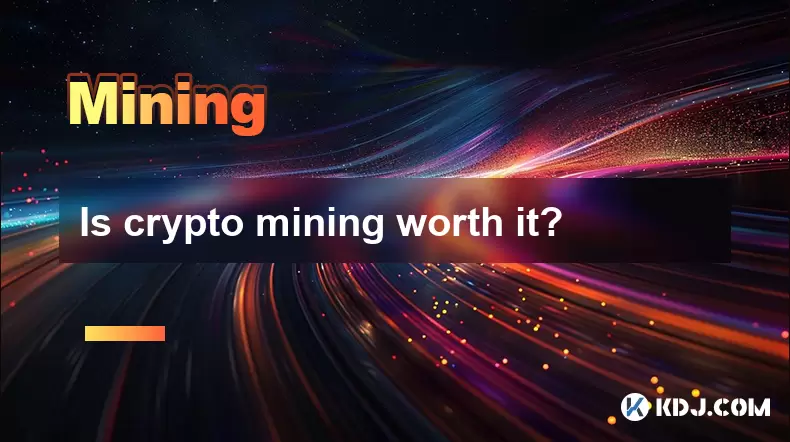
Is crypto mining worth it?
Jul 16,2025 at 01:21am
Understanding the Basics of Crypto MiningCrypto mining refers to the process of validating transactions on a blockchain network by solving complex mat...

How much does it cost to start crypto mining?
Jul 13,2025 at 12:22am
Understanding the Basic Costs of Crypto MiningStarting crypto mining involves several upfront and ongoing expenses. The primary costs include hardware...
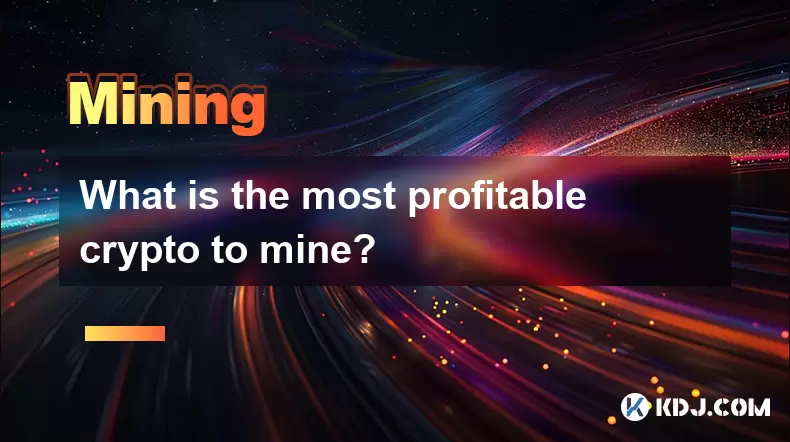
What is the most profitable crypto to mine?
Jul 13,2025 at 07:00am
Understanding Mining Profitability in CryptocurrencyWhen evaluating the most profitable crypto to mine, it's essential to consider several factors tha...

How are crypto mining profits taxed?
Jul 14,2025 at 12:28am
Understanding Cryptocurrency Mining and TaxationCryptocurrency mining involves validating transactions on a blockchain network and earning rewards in ...

How to keep a mining rig cool
Jul 12,2025 at 01:42pm
Understanding the Importance of Cooling in Mining RigsCryptocurrency mining is an intensive process that places heavy demand on hardware components, p...

Can you mine crypto on a laptop?
Jul 16,2025 at 02:21am
Is It Feasible to Mine Cryptocurrency on a Laptop?Mining cryptocurrency on a laptop is technically possible, but feasibility depends heavily on the ha...

Is crypto mining worth it?
Jul 16,2025 at 01:21am
Understanding the Basics of Crypto MiningCrypto mining refers to the process of validating transactions on a blockchain network by solving complex mat...

How much does it cost to start crypto mining?
Jul 13,2025 at 12:22am
Understanding the Basic Costs of Crypto MiningStarting crypto mining involves several upfront and ongoing expenses. The primary costs include hardware...

What is the most profitable crypto to mine?
Jul 13,2025 at 07:00am
Understanding Mining Profitability in CryptocurrencyWhen evaluating the most profitable crypto to mine, it's essential to consider several factors tha...
See all articles

























































































